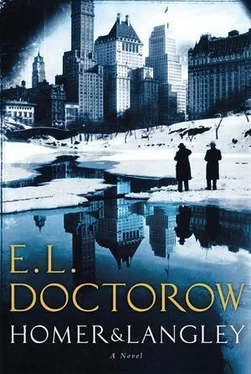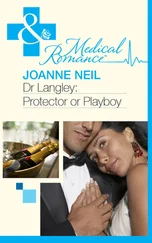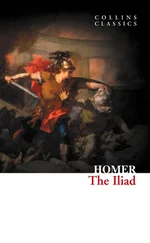E. L. Doctorow
Homer & Langley
I’M HOMER, THE BLIND BROTHER. I DIDN’T LOSE MY SIGHT all at once, it was like the movies, a slow fade-out. When I was told what was happening I was interested to measure it, I was in my late teens then, keen on everything. What I did this particular winter was to stand back from the lake in Central Park where they did all their ice skating and see what I could see and couldn’t see as a day-by-day thing. The houses over to Central Park West went first, they got darker as if dissolving into the dark sky until I couldn’t make them out, and then the trees began to lose their shape, and then finally, this was toward the end of the season, maybe it was late February of that very cold winter, and all I could see were these phantom shapes of the ice skaters floating past me on a field of ice, and then the white ice, that last light, went gray and then altogether black, and then all my sight was gone though I could hear clearly the scoot scut of the blades on the ice, a very satisfying sound, a soft sound though full of intention, a deeper tone than you’d expect made by the skate blades, perhaps for having sounded the resonant basso of the water under the ice, scoot scut, scoot scut. I would hear someone going someplace fast, and then the twirl into that long scurratch as the skater spun to a stop, and then I laughed too for the joy of that ability of the skater to come to a dead stop all at once, going along scoot scut and then scurratch.Of course I was sad too, but it was lucky this happened to me when I was so young with no idea of being disabled, moving on in my mind to my other capacities like my exceptional hearing, which I trained to a degree of alertness that was almost visual. Langley said I had ears like a bat and he tested that proposition, as he liked to subject everything to review. I was of course familiar with our house, all four storeys of it, and could navigate every room and up and down the stairs without hesitation, knowing where everything was by memory. I knew the drawing room, our father’s study, our mother’s sitting room, the dining room with its eighteen chairs and the walnut long table, the butler’s pantry and the kitchens, the parlor, the bedrooms, I remembered how many of the carpeted steps there were between the floors, I didn’t even have to hold on to the railing, you could watch me and if you didn’t know me you wouldn’t know my eyes were dead. But Langley said the true test of my hearing capacity would come when no memory was involved, so he shifted things around a bit, taking me into the music room, where he had earlier rolled the grand piano around to a different corner and had put the Japanese folding screen with the herons in water in the middle of the room, and for good measure twirled me around in the doorway till my entire sense of direction was obliterated, and I had to laugh because don’t you know I walked right around that folding screen and sat down at the piano exactly as if I knew where he had put it, as I did, I could hear surfaces, and I said to Langley, A blind bat whistles, that’s the way he does it, but I didn’t have to whistle, did I? He was truly amazed, Langley is the older of us by two years, and I have always liked to impress him in whatever way I could. At this time he was already a college student in his first year at Columbia. How do you do it? he said. This is of scientific interest. I said: I feel shapes as they push the air away, or I feel heat from things, you can turn me around till I’m dizzy, but I can still tell where the air is filled in with something solid.And there were other compensations as well. I had tutors for my education and then, of course, I was comfortably enrolled in the West End Conservatory of Music, where I had been a student since my sighted years. My skill as a pianist rendered my blindness acceptable in the social world. As I grew older, people spoke of my gallantry, and the girls certainly liked me. In our New York society of those days, one parental means of ensuring a daughter’s marriage to a suitable husband was to warn her, from birth it seemed, to watch out for men and to not quite trust them. This was well before the Great War, when the days of the flapper and women smoking cigarettes and drinking martinis were in the unimaginable future. So a handsome young blind man of reputable family was particularly attractive insofar as he could not, even in secret, do anything untoward. His helplessness was very alluring to a woman trained since birth, herself, to be helpless. It made her feel strong, in command, it could bring out her sense of pity, it could do lots of things, my sightlessness. She could express herself, give herself to her pent-up feelings, as she could not safely do with a normal fellow. I dressed very well, I could shave myself with my straight razor and never nick the skin, and at my instructions the barber kept my hair a bit longer than it was being worn in that day, so that when at some gathering I sat at the piano and played the Appassionata, for instance, or the Revolutionary Étude, my hair would fly about — I had a lot of it then, a good thick mop of brown hair parted in the middle and coming down each side of my head. Franz Lisztian hair is what it was. And if we were sitting on a sofa and no one was about, a young lady friend might kiss me, touch my face and kiss me, and I, being blind, could put my hand on her thigh without seeming to have that intention, and so she might gasp, but would leave it there for fear of embarrassing me.I should say that as a man who never married I have been particularly sensitive to women, very appreciative in fact, and let me admit right off that I had a sexual experience or two in this time I am describing, this time of my blind city life as a handsome young fellow not yet twenty, when our parents were still alive and had many soirees, and entertained the very best people of the city in our home, a monumental tribute to late Victorian design that would be bypassed by modernity — as for instance the interior fashions of our family friend Elsie de Wolfe, who, after my father wouldn’t allow her to revamp the entire place, never again set foot in our manse — and which I always found comfortable, solid, dependable, with its big upholstered pieces, or tufted Empire side chairs, or heavy drapes over the curtains on the ceiling-to-floor windows, or medieval tapestries hung from gilt poles, and bow-windowed bookcases, thick Persian rugs, and standing lamps with tasseled shades and matching chinois amphora that you could almost step into … it was all very eclectic, being a record of sorts of our parents’ travels, and cluttered it might have seemed to outsiders, but it seemed normal and right to us and it was our legacy, Langley’s and mine, this sense of living with things assertively inanimate, and having to walk around them.Our parents went abroad for a month every year, sailing away on one ocean liner or another, waving from the railing of some great three-or four-stacker — the Carmania? the Mauretania? the Neuresthania? — as she pulled away from the dock. They looked so small up there, as small as I felt with my hand in the tight hand of my nurse, and the ship’s horn sounding in my feet and the gulls flying about as if in celebration, as if something really fine was going on. I used to wonder what would happen to my father’s patients while he was away, for he was a prominent women’s doctor and I worried that they would get sick and maybe die, waiting for him to return.Even as my parents were running around England, or Italy, or Greece or Egypt, or wherever they were, their return was presaged by things in crates delivered to the back door by the Railway Express Company: ancient Islamic tiles, or rare books, or a marble water fountain, or busts of Romans with no noses or missing ears, or antique armoires with their fecal smell.
Читать дальше












